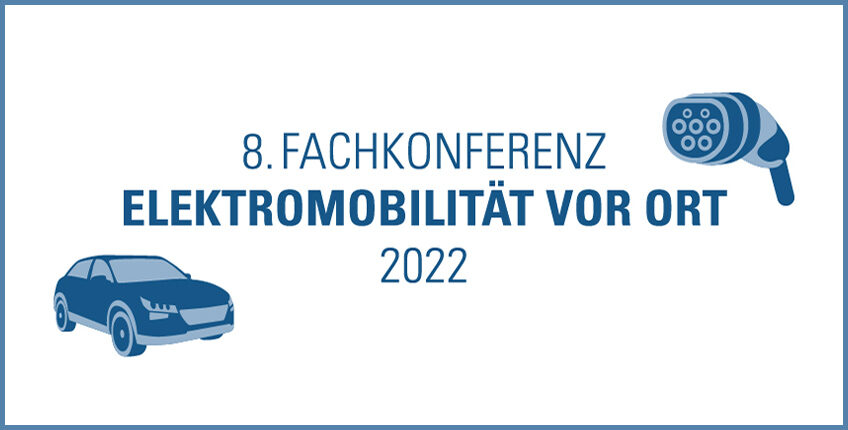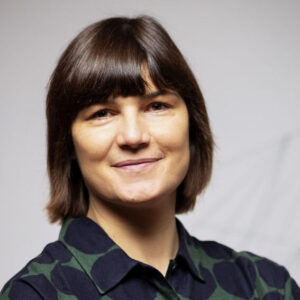Berlin, 7 April 2022 – The Federal Ministry of Digital and Transport's (BMDV – Bundesministerium für Digital and Transport) “Elektromobilität vor Ort” specialist conference on local electric mobility is the key platform for exchange on the subject of battery-electric mobility for municipalities as well as municipal companies and fleet operators. The two-day digital conference starts today with more than 1,500 participants.
Highlights and key topics 2022
This year’s conference is dedicated to the future of electric mobility. After a welcoming address by Federal Minister of Transport Volker Wissing, a distinguished panel of top business leaders discusses zero-emission, electric and digital mobility together with Prof. Dr. Klaus Bonhoff, Director General for Policy Issues at the Federal Ministry for Digital and Transport. The conference will provide insights into psychological aspects of e-mobility as well as the future direction of mobility, the market and the vehicles of the future. The latest figures on e-mobility in Germany will also be presented.
BMDV launches new funding call for electric mobility concepts
The Federal Ministry for Digital and Transport (BMDV – Bundesministerium für Digital and Transport) is now once again funding municipalities as well as municipal and commercial companies in the development of application-oriented electric mobility concepts. For the first time, the current call for funding considers the combination of electrification and digitalisation of mobility from a municipal and commercial perspective. Expenditures up to a maximum of 100,000 euros (net) can be funded by up to 80 percent.
A new call for funding for the procurement of e-vehicles and the associated charging infrastructure needed for thier operation, which will focus particularly on municipal challenges, is currently being drafted.
Kurt-Christoph von Knobelsdorff, Managing Director (Chair) of NOW GmbH: “Despite the growing number of new vehicle registrations, climate-friendly mobility continues to require comprehensive support for application-oriented R&D projects, e-mobility concepts as well as support for the electrification of fleets in municipalities and companies. I am looking forward to NOW GmbH’s continued commitment to coordinating and shaping the developments in this area.”
New publications focus on municipal issues
- The Electric Mobility Act Guideline (Leitfaden zum Elektromobilitätsgesetz) provides municipalities with practical assistance in supporting electric mobility on a local level.
- The Municipalities and Electric Mobility factsheet (Factsheet Kommunen und Elektromobilität) summarises the most important results of the fourth survey of German municipalities on the topic of electric mobility.
- The Electric Mobility Starter Set (Starterset Elektromobilität) becomes the Electric Mobility Jump-Starter Set (Durchstarterset Elektromobilität). The online platform has been revised to provide even better support for cities and municipalities and can soon be visited at www.durchstarterset-elektromobilitaet.de.
- The concluding report on the accompanying research on innovative bus drives (Abschlussbericht zur Begleitforschung Innovative Antriebe Bus) presents figures and data from three years of bus funding and the accompanying research.
About the Electric Mobility Conference
The conference brings together municipalities, municipal companies, public utilities, transport operators and companies involved in fleet management. The aim is to support the establishment of emission-free mobility at the local level with practical tips, technical solutions and well-founded recommendations for action from the BMDV’s funding projects. The focus is also on funding opportunities offered by the BMDV in the field of electric mobility.
The specialist conference is organised by NOW GmbH. Cooperation partners include the German Association of Cities (Deutscher Städtetag), the German Association of Districts (Deutscher Landkreistag), the German Association of Towns and Municipalities (Deutscher Städte- und Gemeindebund), the Association of Municipal Enterprises (Verband kommunaler Unternehmen) and the Association of German Transport Companies (Verband deutscher Verkehrsunternehmen).
Further information
The conference documentation will be made available online here after the event.
Overview: Funding support for electric mobility by the BMDV
The Federal Ministry of Transport has been making a steady and targeted contribution to achieving the target of 15 million electric passenger cars by 2030 with various funding programmes for electric mobility, since 2009.
The Electric Mobility Funding Guideline supports the procurement of electric cars and special vehicles for municipal and commercial fleets along with the associated charging infrastructure. Support is also provided for the development of electric mobility concepts as a strategic basis for promoting the transition to electric drive systems in municipalities and companies. In order to strengthen innovation and thus the competitiveness of Germany as an automotive location, the BMDV also supports research and development projects for the future of electric mobility.
The BMDV has been active in providing funding support for electric mobility since 2009: From 2015 up to and including 2021 alone, more than 1,100 projects involving almost 20,000 vehicles and 8,800 charging infrastructure units were approved with around 389 million euros in funding, as well as 288 concept projects and 25 research and development projects.
The Electric Mobility Funding Guideline was extended at the end of 2020 and, in addition to municipalities, increasingly focused on commercial fleets and passenger cars in order to support the further market ramp-up in an even more targeted and relevant manner. Around 30 million euros will be available annually until 2025.
The BMDV is also supporting the expansion of the charging infrastructure and the procurement of climate-friendly commercial vehicles (1.6 billion euros by 2024), alternative drives for buses in passenger transport (1.25 billion euros by 2024) and alternative drive systems in rail transport (227 million euros by 2024) with corresponding funding guidelines that are open to all technologies.


